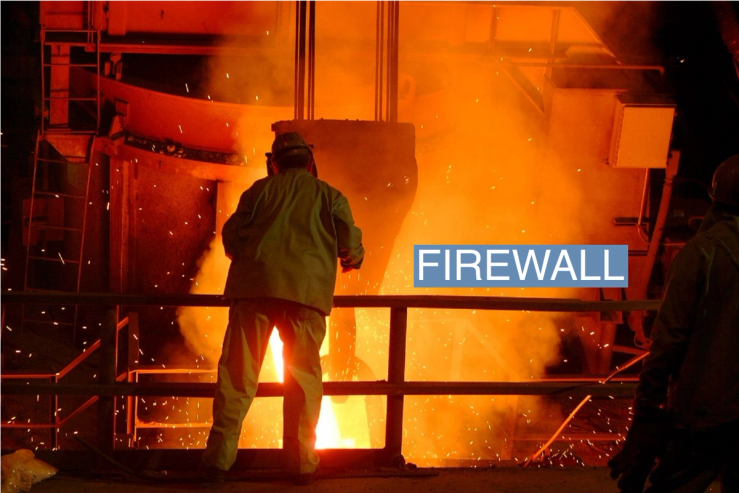The News
Senate Republicans announced a long-awaited plan to tax carbon-intensive imports, opening the next front in the simmering clean-energy trade war between China and the United States. But it’s unclear if the bill will be able to achieve its twin aims of lowering global emissions and protecting U.S. jobs.
Tim’s view
Placing controls on global trade is one of the strongest levers that U.S. policymakers have to bend the emissions curve in countries — China especially — with more carbon-intensive industrial processes. And the Foreign Pollution Fee Act, introduced by Sens. Bill Cassidy (R-LA) and Lindsey Graham (R-SC), looks like the most realistic shot yet at U.S. carbon pricing legislation that could actually become law. But the design of the bill illustrates just how hard it is to balance that objective with the key Republican goal of protecting U.S. manufacturers. Any form of carbon pricing, even if it doesn’t target U.S. companies, remains a touchy subject with Republicans — as my Joseph Zeballos-Roig reported today, one of the bill’s original backers, Sen. Roger Wicker (R-Miss.) has withdrawn his support “after encountering major blowback from conservative groups.”
At the same time, the policy innovations engineered to make it more appealing to Republicans, especially leaving out a domestic carbon tax, could undermine the bill’s effectiveness on climate.
“On balance, this bill is more about protecting U.S. producers,” said Aaron Cosbey, a senior economist at the International Institute for Sustainable Development. “Judging it as a climate measure, it doesn’t come out well.”
Taxing imports based on their associated emissions, in theory, encourages producers to clean up. It also creates a level playing field with domestic producers that face higher regulatory compliance costs or local carbon taxes. The Republican proposal targets many of the same products as the EU’s Carbon Border Adjustment Mechanism, including aluminum, steel, and cement. But unlike the CBAM, the U.S. bill sets fees based on an average emissions metric in the producer’s country of ownership, not of the individual producing facility per se. A steel factory that is located in China or elsewhere but majority-owned by a Chinese entity, for example, would face an import fee based on average steel-sector emissions in China. This is meant to prevent firms or countries from “gaming” the system, by sending a small number of cleaner products to the U.S. but ramping up emissions in the rest of their operations.
The problem, Cosbey said, is that this measure disincentivizes companies from taking early steps to decarbonize by lumping leaders in with laggards. The bill allows individual facilities to be exempted from the national average, but only by entering into “partnerships” that must be individually approved by Congress, adhering to all U.S. environmental laws, and submitting to spot emissions inspections — an onerous process that few companies, especially those based in China, will be willing and able to follow.
Setting the fee for covered products is also tricky, because there’s no U.S. carbon price to use as a benchmark. Instead, the bill requires a commission of bureaucrats, government scientists, and private sector executives to work backward from a desired emissions reduction target and set a fee that can achieve that reduction, which requires a bit of “voodoo” math and could backfire, Cosbey said. Place the tariff too high, and producers may simply stop selling in the U.S. market, or slap on their own retaliatory fees. That risks choking off U.S. access to some essential clean-energy technologies that are covered by the bill — including hydrogen, biofuels, solar cells, and wind turbines — and ultimately slowing the energy transition. And if the tariff is too low, it won’t be effective in lowering emissions in the exporting country.
“Ideally they converge on something that doesn’t restrict trade unduly,” Cosbey said. “But because it’s the Wild West, that’s not guaranteed.”
Room for Disagreement
Any approach to climate trade policy is going to face trade-offs, and the Republican bill does the best job of any attempt by Congress yet to manage them in a way that’s politically viable, said Xan Fishman, director of energy policy and carbon management at the Bipartisan Policy Center, a think tank. It’s fair to set a very high bar for exceptions to the fee, he said, and as for the fee calculations, “the math is doable.”
“For decarbonization in general, the goal needs to be to do it in such a way that it’s good for the U.S.,” he said.
Know More
Meanwhile, the Biden administration is facing another trade-policy challenge with similar dimensions. The Treasury Department is expected to issue guidelines in the next few weeks limiting the models of electric vehicles that qualify for Inflation Reduction Act tax credits based on whether they include components from “foreign entities of concern,” a legal designation that includes China. The question is whether the Treasury will allow the tax credit to be applied for EVs in which some small percentage of battery materials were sourced from China, or that use batteries produced by companies that are partially owned by Chinese entities.
Narrow guidance would disqualify nearly every EV on the market; broad guidance would open the IRA to broadsides from Republican lawmakers and disadvantage emergent U.S. battery manufacturers. The guidance is “the first big test” of the administration’s approach to balancing its climate-related trade, economic development, and geopolitical interests, said Jane Nakano, a senior energy security fellow at the Center for Strategic and International Studies.
The View From Indonesia
Biden’s approach to a version of the trade deal envisioned by the Republican bill will get a hearing this weekend when he meets with Indonesian President Joko Widodo at the Asia-Pacific Economic Cooperation summit in San Francisco. Widodo is expected to press the U.S. to allow Indonesia’s booming nickel sector to benefit from IRA tax credits, something the administration has been loath to do because of that industry’s financial links to China. Widodo will also call for the U.S. to follow through on promised funding to shut down its coal-fired power plants, even though Indonesia’s latest plans to do so were watered down.
Notable
- While the IRA does a good job incentivizing domestic battery manufacturing to catch up with China, it doesn’t go far enough to promote domestic mining, Wellesley College environmental scientist James Morton Turner argued this week in The New York Times: “So as the United States expands investments in clean energy manufacturing, its dependency on global supply chains, dominated by China, will only grow.”


